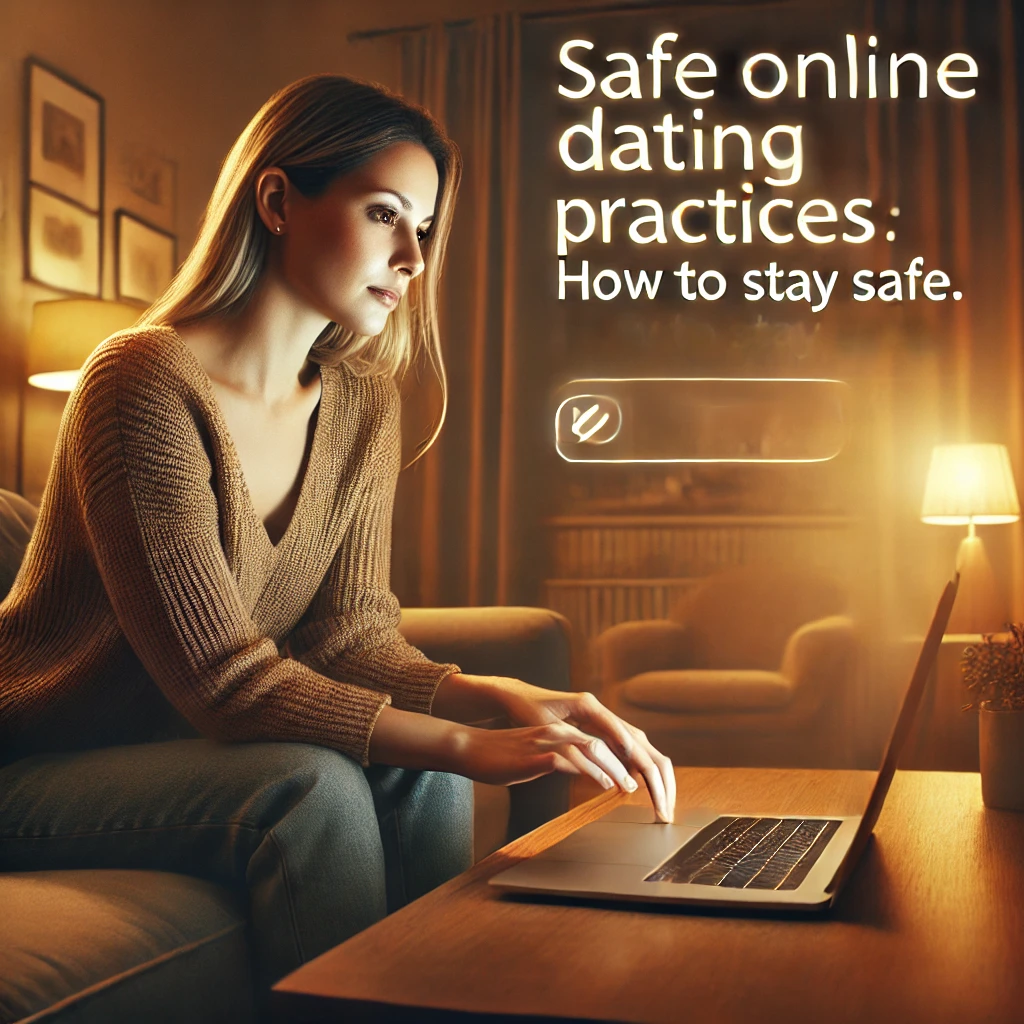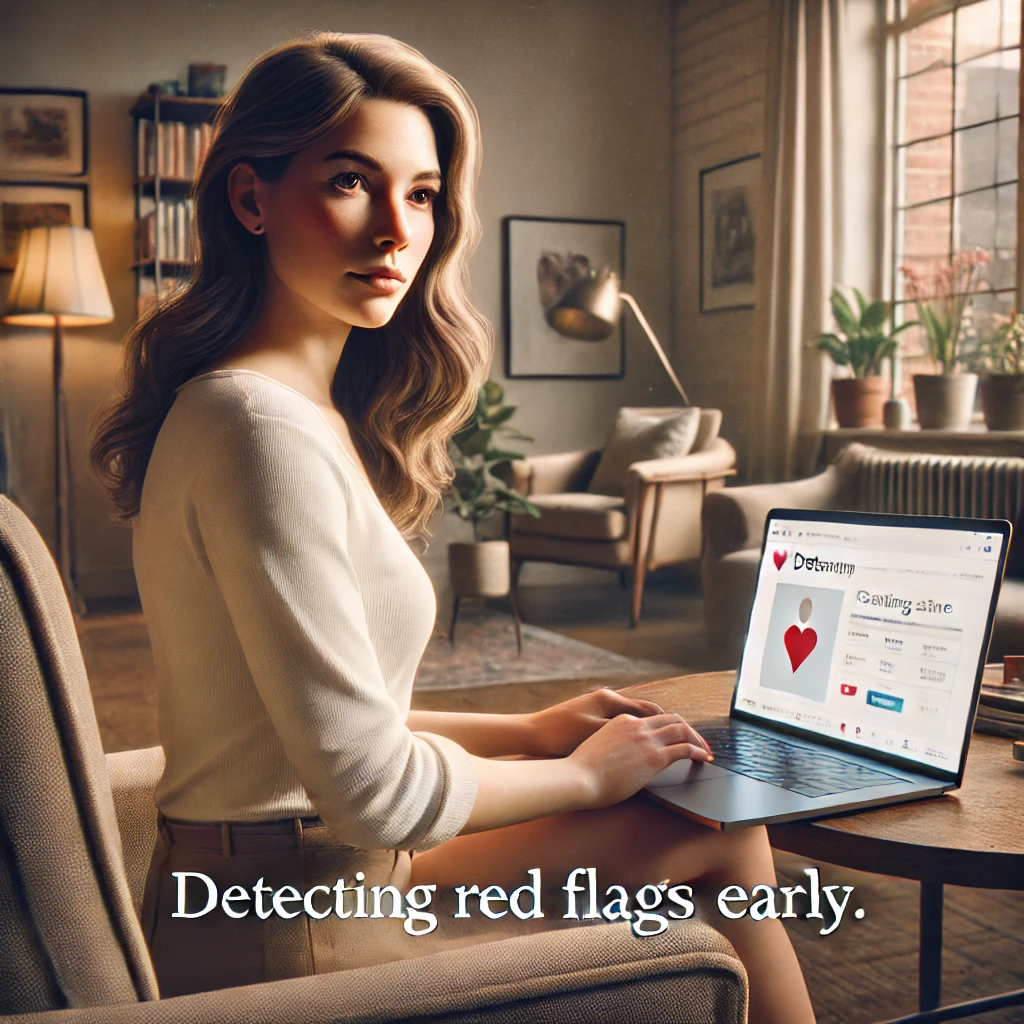
Introduction
Online dating has revolutionized the way people connect, offering exciting opportunities to meet others with similar interests, values, and life goals. However, just like meeting people in person, online dating comes with its own set of risks. It’s essential to prioritize safety while navigating the digital world of dating. Whether you’re new to online dating or have been doing it for a while, understanding safe practices and recognizing potential red flags can protect you from unpleasant and potentially dangerous situations.
In this blog post, we’ll explore some key online dating safety practices, identify common red flags, and offer guidance on how to detect these red flags so you can make informed decisions that prioritize your safety and well-being.
1. Protect Your Personal Information
One of the foundational rules of online dating is to protect your personal information. Be cautious about sharing sensitive details like your home address, phone number, workplace, or financial information with someone you’ve just met online. It’s always better to keep conversations general and avoid disclosing too much too soon.
Here are some ways to protect your personal information:
- Use the Platform’s Messaging System: Most dating apps and websites have built-in messaging systems. Stick to those communication channels in the early stages to avoid giving out your personal phone number.
- Be Wary of Oversharing: It’s easy to get comfortable when chatting online, but avoid sharing personal information like where you live, your daily routines, or your travel plans until you’re confident in the person’s trustworthiness.
- Create a Separate Email Account: If the dating site requires an email, consider using a separate one for dating purposes. This keeps your primary email private and reduces the risk of unwanted communication if things don’t go as planned.
2. Vet Your Matches Carefully
It’s crucial to do a little homework on the person you’re talking to online before moving forward in the relationship. While you shouldn’t feel paranoid, taking a cautious approach can prevent unwanted surprises.
Here are some tips for vetting your matches:
- Check Their Social Media: Social media can provide valuable insights into a person’s life. Check their profiles for consistency with the information they’ve shared on the dating platform. Be wary of profiles that seem fake or too curated.
- Google Their Name: A quick search can reveal whether the person has an online presence. If someone is serious about dating, they’re likely to have some kind of public footprint, even if it’s minimal. A complete lack of online presence may be a red flag.
- Video Chat Before Meeting: Before agreeing to meet in person, consider scheduling a video chat. This not only confirms their identity but also gives you a better sense of who they are beyond text messages or voice calls.

3. Take Things Slowly
In the digital world of instant communication, it can be tempting to fast-track a connection. However, rushing things can lead to bad judgment calls, and in some cases, it can put you in risky situations.
Why it’s important to take things slowly:
- Avoid Being Pressured: If someone you’re talking to online pushes you for personal information, asks you to meet up immediately, or wants to move too quickly, that’s a red flag. A trustworthy person will respect your pace and boundaries.
- Get to Know Them Gradually: Take time to really get to know the person before making decisions about meeting in person. Gradual communication helps you gauge their character, intentions, and compatibility.
- Be Skeptical of Love Bombing: Love bombing is when someone showers you with intense attention, affection, or compliments too quickly. This may feel flattering, but it’s often a manipulative tactic used by people who want to gain control or mask their true intentions. Watch for these signs and set boundaries if it feels too much too soon.
4. Be Aware of Common Red Flags
Spotting red flags early can save you from potential harm. Some behaviors should raise immediate concern and prompt you to re-evaluate whether this person has your best interests at heart.
Common red flags to watch out for:
- Inconsistent Information: If the person you’re chatting with provides conflicting stories about their job, age, background, or personal life, this is a sign that they may not be entirely truthful. Trustworthy people will provide consistent and honest information.
- Reluctance to Meet or Video Chat: If someone keeps coming up with excuses to avoid meeting in person or refuses to video chat, it could be a sign that they are hiding something. While some people may have legitimate reasons for delaying a meeting, continued hesitation could indicate dishonesty or even catfishing.
- Avoiding Questions: People with good intentions are generally open to answering reasonable questions about themselves. If your match frequently dodges questions or is evasive about their life, take this as a red flag.
- Immediate Intimacy or Aggressive Behavior: If someone is pushing for a serious relationship immediately, especially without knowing you well, it’s a red flag. Similarly, aggressive or overly emotional behavior, especially if they try to make you feel guilty for setting boundaries, is concerning.
- Requests for Money: One of the biggest red flags in online dating is a request for money. Scammers often use emotional manipulation, telling sob stories or inventing emergencies, to convince you to send money. Never send money to someone you’ve only met online, no matter how convincing their story may sound.

5. Detecting Red Flags Early
Now that you know what to watch for, how do you detect these red flags before they become more serious? Here are some ways to keep your radar sharp:
- Listen to Your Gut: Your instincts are one of your best tools in identifying red flags. If something feels off, don’t ignore it. Whether it’s the way they communicate or inconsistencies in their stories, listen to your intuition.
- Notice Emotional Manipulation: Pay attention to whether your match tries to manipulate your emotions. Love bombing, guilt-tripping, or excessive flattery may be signs that they are attempting to sway your judgment.
- Observe Patterns: Pay attention to patterns in their behavior. For example, do they frequently cancel plans at the last minute, make excuses to avoid meeting, or change their stories? Inconsistent behavior is a significant warning sign.
- Ask Direct Questions: Don’t be afraid to ask direct questions. Honest people won’t shy away from answering, while someone with ill intentions may become defensive or evasive.
6. Meeting in Person: Safety Guidelines
If you’ve communicated with someone online for a while and feel comfortable meeting them in person, there are still precautions you should take to ensure your safety.
- Meet in Public: Always arrange to meet in a public place for your first few dates. Busy coffee shops, restaurants, or public parks are good options. Never agree to meet in a private location or go to their home on the first date.
- Let Someone Know: Before heading out on the date, inform a friend or family member of your plans. Share details like who you’re meeting, where you’re going, and when you expect to be back. Having someone aware of your whereabouts adds an extra layer of protection.
- Drive Yourself: Arrange your own transportation to and from the date. Whether it’s using your own car, taking public transit, or using a rideshare app, this ensures that you have control over when and how you leave.
- Trust Your Gut During the Date: If something doesn’t feel right, don’t hesitate to cut the date short. You are under no obligation to stay in a situation that makes you uncomfortable.
7. Report Suspicious Behavior
Most dating platforms have mechanisms in place to report suspicious or inappropriate behavior. If you encounter someone who seems to be engaging in harmful or manipulative practices, report them to the platform. This protects you and helps prevent the same thing from happening to others.
Conclusion
Online dating can be a fantastic way to meet new people, but it’s important to stay vigilant and prioritize your safety. By following safe online dating practices, recognizing red flags, and trusting your instincts, you can navigate the online dating world with confidence. Remember, it’s okay to take things slow, vet your matches, and set boundaries when necessary. Ultimately, the right person will respect your safety and help you feel comfortable throughout the dating process.


